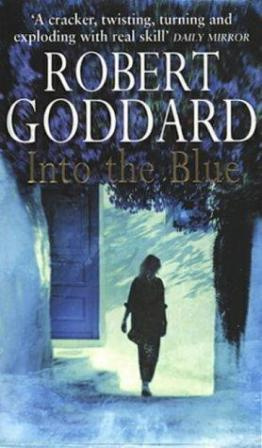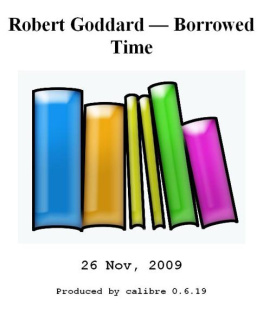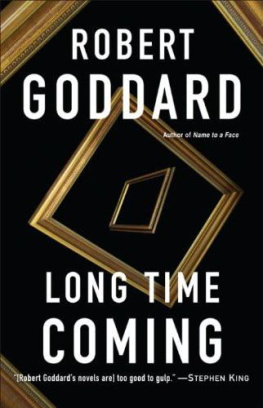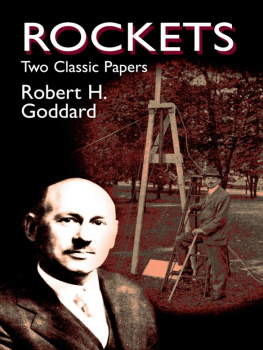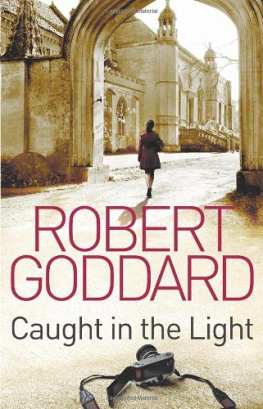Robert Goddard - Days without number
Here you can read online Robert Goddard - Days without number full text of the book (entire story) in english for free. Download pdf and epub, get meaning, cover and reviews about this ebook. year: 2003, publisher: Bantam Press, genre: Detective and thriller. Description of the work, (preface) as well as reviews are available. Best literature library LitArk.com created for fans of good reading and offers a wide selection of genres:
Romance novel
Science fiction
Adventure
Detective
Science
History
Home and family
Prose
Art
Politics
Computer
Non-fiction
Religion
Business
Children
Humor
Choose a favorite category and find really read worthwhile books. Enjoy immersion in the world of imagination, feel the emotions of the characters or learn something new for yourself, make an fascinating discovery.
- Book:Days without number
- Author:
- Publisher:Bantam Press
- Genre:
- Year:2003
- Rating:5 / 5
- Favourites:Add to favourites
- Your mark:
- 100
- 1
- 2
- 3
- 4
- 5
Days without number: summary, description and annotation
We offer to read an annotation, description, summary or preface (depends on what the author of the book "Days without number" wrote himself). If you haven't found the necessary information about the book — write in the comments, we will try to find it.
Days without number — read online for free the complete book (whole text) full work
Below is the text of the book, divided by pages. System saving the place of the last page read, allows you to conveniently read the book "Days without number" online for free, without having to search again every time where you left off. Put a bookmark, and you can go to the page where you finished reading at any time.
Font size:
Interval:
Bookmark:
Days Without Number
By the same author
Past Caring (1986)
In Pale Battalions (1988)
Painting the Darkness (1989)
Into the Blue (1990) (Winner of the first WH Smith Thumping Good Read Award and dramatized for TV in 1997, starring John Thaw)
Take No Farewell (1991)
Hand in Glove (1992)
Closed Circle (1993)
Borrowed Time (1995)
Out of the Sun (1996) (a sequel to Into the Blue)
Beyond Recall (1997)
Caught in the Light (1998)
Set in Stone (1999)
Sea Change (2000)
Dying to Tell (2001)
DAYS WITHOUT NUMBER
Robert Goddard
BANTAM PRESS
LONDON NEW YORK TORONTO SYDNEY AUCKLAND
TRANSWORLD PUBLISHERS
61-63 Uxbridge Road, London W5 5SA,
a division of The Random House Group Ltd
Published 2003 by Bantam Press a division of Transworld Publishers
Copyright Robert and Vaunda Goddard 2003
The right of Robert Goddard to be identified as the author of this work has been asserted in accordance with sections 77 and 78 of the Copyright Designs and Patents Act 3 988.
All the characters in this book are fictitious, and any resemblance to actual persons, living or dead, is purely coincidental.
A catalogue record for this book is available from the British Library.
ISBNs 0593 047591 (cased)
0593 047648 (tpb)
All rights reserved. No part of this publication may be reproduced, stored in a retrieval system, or transmitted in any form or by any means, electronic, mechanical, photocopying, recording, or otherwise, without the prior permission of the publishers.
13579 10 8642
In memory of my father,
William James Goddard,
1903-1984
So teach us to number our days,
that we may apply our hearts unto wisdom.
Psalms 90:12
PART ONE
CHAPTER ONE
He did not regret agreeing to go. He had long learned to accept the consequences of every decision he took with a degree of equanimity. Regret, then, was hardly the word for it. But consequences hatch slowly and not always sweetly. The long drive west had reminded him of the point more forcefully with every mile. His past was a hostile country, his present a tranquil plain. By going home he was not only abandoning a refuge, but proclaiming that he no longer needed one which, naturally, he would have said was self-evidently true. But saying and believing are very different things, as different as noise and silence. And what he heard most through the tinted glass and impact-proof steel of his sleek grey company car... was silence.
Heading west to reach home was also a contradiction in historical terms. However well he played the part of a coolly efficient middle-management Englishman, Nicholas Paleologus was, if his grandfather's genealogical researches were to be believed, something altogether more exotic: a descendant of the last Emperor of Byzantium. He had always displayed, and almost always felt, a keen disdain for his semi-legendary eastern roots. The attention they had attracted had been at best unwelcome, at worst... But he did
not care to dwell on the worst he could remember. Since isolating himself from his family, he had been prepared to admit to Greek ancestry, but nothing more, denying any imperial connection to those pitiful few who recognized the name.
It scarcely seemed likely, after all, that the last of the Paleologi should have found their way to England. Yet so their patchy history insisted. The Paleologus dynasty had ruled Byzantium for the last and least glorious two hundred years of its existence, until Emperor Constantine XI of that ilk had fallen defending the walls of Constantinople in vain against the besieging Turks in 1453. The disaster had scattered those of the family it had not destroyed, to mix with humbler bearers of the name around the Mediterranean, until Constantine's great-great-great-great nephew, Theodore, fleeing an attempted murder charge in Italy, had set fugitive foot on English soil - and never left it. He had lived out his final years as a guest of the Lower family at their mansion, Clifton, on the Cornish bank of the Tamar, opposite Plymouth, in the parish of Landulph, where he had died in 1636.
It was Theodore Paleologus's memorial plaque in Landulph Church that had inspired Nick's grandfather, Godfrey Paleologus, to settle in the area and devote the numerous leisure hours a sizeable inheritance allowed him to proving his descent from the imperial line. He had bought a tumbledown farmhouse called Trennor halfway between the church and the village of Cargreen and slowly transformed it into a comfortable family home. A Plymothian by birth, he had never quite clinched his blood connection with the long-dead Theodore, but had at least achieved his ambition of being buried at Landulph, though not in the seventeenth-century Paleologus vault.
His son Michael had read archaeology at Oxford and gone on to teach it there. His five children, including Nick, had all been born in the city. But Michael had never sold Trennor, keeping it as a holiday home even after his parents' deaths
and ultimately retiring there himself. Since his wife's death, he had lived alone, though four of his children were close by, tied to the area by choice or chance. Only Nick ploughed a distant furrow. And now he too was returning. Though not for long. And not, he suspected, for the very best of reasons.
It was Friday afternoon. A dank winter nightfall had outpaced him on the road. Maybe it was just as well, he thought, as the wayside mileage signs counted him down to his destination. Maybe the cover of darkness was what he needed. Cover of some sort, for sure. He always needed that.
Sunday would be his eldest brother's fiftieth birthday. Andrew farmed sheep on Bodmin Moor, cutting an ever more forlorn figure - according to their sister, Irene - thanks to divorce, estrangement from his only son and the dire state of British agriculture. A birthday party at Trennor - a gathering of the siblings - would do them all good, Andrew especially. It was a summons Nick could not very well ignore. But in luring him down, Irene had admitted that there was more to it than that. 'We need to talk about the future. I don't see how Dad can cope at Trennor on his own much longer. A possibility's cropped up and we'd like your input.' She had declined to be specific over the telephone, hoping, Nick inferred, to rouse his curiosity as well as his conscience. Which she had done, though not as conclusively as she must have hoped. Nick had agreed in the end because he had no reasonable excuse not to.
The rush-hour traffic was just beginning to thin as Nick reached Plymouth. He followed the A38 as it sliced through the city to the Tamar Bridge, where widening work slowed progress to a crawl over the broad, black expanse of the river. A train was crossing the railway bridge to his left, heading back the way he had come. He could not help wishing he was on it, could not help surrendering for an instant his well practised equanimity.
But only for an instant. Then he was in control once more. On the other side of the bridge, he turned off into the centre
of Saltash and doubled back through the oldest part of the town, descending the steep hill to the river, with the road and railway looming above him. As he turned right at the bottom of the hill, he saw at once ahead of him along the quayside the warmly lit windows of the Old Ferry Inn, where Irene Viner, ne Paleologus, had presided as landlady for the past twelve years. The pub trade had been her husband's idea, following redundancy from Devonport Dockyard. But he had soon started drinking most of the takings, a problem Irene had solved only with the help of a divorce lawyer. She had freely admitted that running a pub had never been an ambition of hers, but had gone on to make a much better job of it than Nick would ever have predicted.
Next pageFont size:
Interval:
Bookmark:
Similar books «Days without number»
Look at similar books to Days without number. We have selected literature similar in name and meaning in the hope of providing readers with more options to find new, interesting, not yet read works.
Discussion, reviews of the book Days without number and just readers' own opinions. Leave your comments, write what you think about the work, its meaning or the main characters. Specify what exactly you liked and what you didn't like, and why you think so.

